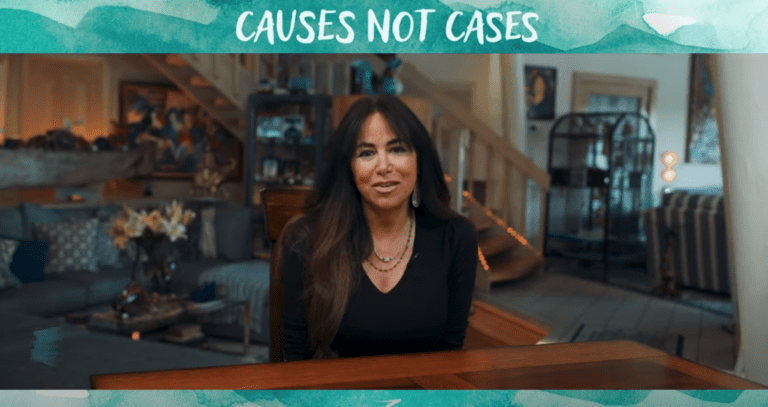 One of the first and most pressing questions people have when they think of engaging a lawyer to represent them is a simple one: how much does it cost to hire a lawyer?
One of the first and most pressing questions people have when they think of engaging a lawyer to represent them is a simple one: how much does it cost to hire a lawyer?
It’s an excellent question. Lawyers have a reputation for providing pricey services. If you’re a victim of an accident or other trauma, you may suffer adverse financial effects as well as negative physical and mental effects. Doctor and other medical bills may pile up. The injuries may keep you from working, either temporarily or permanently, so you may not have the money to pay those bills. If you’re under financial duress from injuries or illness, the last thing you might want is to incur a lawyer’s fees.
[lwptoc]
Payment for Personal Injury Lawyers: A Brief Overview
If you need to hire a personal injury lawyer, though, you do not have to come up with the cash upfront, ever. First, personal injury lawyers offer a free initial consultation to discuss your case. They need to know what occurred, how it happened, and the injuries’ effect on you.
Second, when a personal injury lawyer takes a case, they work on a contingency fee basis. Those contingency fees are typically a percentage of any money you receive for your injuries. If an insurance company settles a claim, for example, or if you go to civil court and receive an award, the lawyer’s contingency fees come out of the award amount.
If you do not receive any claim payout or award from a civil case, you do not owe the lawyer a cent. Yes, you read that right. You do not owe anything if your personal injury case is not successful.
The net result is that there is no financial risk to you in hiring a personal injury lawyer. You aren’t charged, either for the first free discussion of the case or for the lawyer’s services after they take your case, because the lawyers receive payment from contingency fees that are a percentage of your eventual payment for the injury, not from your own pocketbook.
In fact, the greater risk to injury victims is that they can essentially lose money if they don’t hire a personal injury lawyer. How? Well, although we’d all like to believe injured people receive fair compensation from insurance companies and the entities that injured and harmed them, that’s not always the case.
Insurance companies will fight very hard to deny injury victims a fair and just settlement because they want their profits to rise as high as possible. A fair claim settlement may impact their bottom line. Insurers use sophisticated tactics to deny claims or minimize them so they are as low as possible.
Similarly, the entities that caused or contributed to your injury are not necessarily going to raise their hands and admit to it. They may accuse you of causing your own injury, or come up with some other cause, all to deflect responsibility from themselves. They do not necessarily want to pay you a fair settlement.
As a result, if you approach an injury claim without a lawyer, you are at the mercy of their tactics to deny or minimize their responsibility, and to pay you either nothing or the lowest settlement possible.
A lawyer can protect you from these tactics. Lawyers are committed to obtaining a just settlement for their clients. They can help you receive the fairest amount possible, not the lowest amount possible or zero.
Types of Lawyers and Types of Charges
Okay, you may think, so personal injury lawyers don’t charge out-of-pocket costs, so I don’t have to pay them upfront. But if that’s so, then why do lawyers have a reputation for high costs?
The reason is that there are different types of lawyers, and different types of payment systems.
Personal injury lawyers work with the victims of injuries or harm caused by people (such as car accidents) or other entities (such as a company whose products are unsafe). As we’ve already discussed, they work via free initial consultations and contingency fees.
But personal injury lawyers are just one type of lawyer. Other types include:
- Family lawyers, who work with divorce and associated issues, such as child custody;
- Criminal lawyers, who work with people charged with crimes;
- Estate lawyers, who work with wills, trusts and other matters regarding people’s assets;
- Real estate lawyers, who work with issues such as mortgage foreclosures; and
- Business lawyers, who set up business contracts and other matters related to running a business.
Personal injury lawyers are one of the few types who work via contingency fees.
Most other types of lawyers will use one or more of the following types of payment, all of which require their clients to pay upfront and out of pocket.
- Hourly rate – Some types of lawyers charge an hourly rate for their services, such as drawing up a business contract.
- Flat fees – Some lawyers charge a flat fee for specific services, such as drawing up a will.
- Consultation fees – Lawyers who practice in areas other than personal injury law may choose to charge for consultations, depending on the complexity of their cases.
- Retainer fees – Lawyers in some fields may charge retainer fees for cases or services with an extended time. The lawyer usually sets retainer fees by multiplying the hourly rate by a certain number of hours. Clients pay retainer fees in advance of services.
Why Personal Injury Lawyers Use Contingency Fees
If so many types of lawyers use other methods, why do personal injury lawyers use contingency fees? The answer is simple. Personal injury lawyers work with people who suffer injury or other types of harm for which other people (or organizations) bear responsibility. The people who caused the injury bear financial responsibility as well. As a result, they, rather than the victim, bear responsibility for the lawyer’s fees. They essentially pay the lawyer via the contingency fee. That’s why the victim doesn’t pay.
Personal injury law revolves around the central concept of negligence. Negligence is a violation of an expected duty of care.
This is easiest to understand with specific examples. We all know, for instance, that drivers are responsible for the safe operation of their vehicles and for obeying all traffic laws. Well, that, in a nutshell, is their duty of care. That duty of care comes along with the attainment of a driver’s license and access to a vehicle.
A driver who causes or contributes to an accident arguably violates the standard of care. Failing to stop at a red light or a stop sign, failure to yield the right of way, and speeding all constitute examples of violations of both prudent conduct and the law—and they are far from the only ones. Drivers who do these things are negligent.
If a driver is negligent, they bear financial responsibility for the injuries and other harm their actions directly caused. In legal terms, financial responsibility is called liability. A driver who runs a red light and broadsides your car may cause a spinal cord injury (SCI), for example. The driver is thus financially responsible for these injuries.
Types of Personal Injury
While our example stems from a vehicle accident, personal injury law covers many different types of personal injury, including:
- Vehicle accidents, including car accidents, truck accidents, motorcycle accidents, bicycle accidents, railroad accidents, aviation accidents, bus accidents, rideshare accidents, and more;
- Pedestrian accidents, involving vehicles, other pedestrians, and more
- Premises liability accidents, such as slipping and falling in a store or other premises the victim doesn’t own;
- Product liability accidents, such as injury or other harm from an unsafe product, such as a dangerous drug or exploding toy;
- Construction accidents caused by unsafe conditions or carelessness on the part of companies or employees;
- Dog bites and other animal attacks caused by domestic animals owned by parties other than the victim;
- Injuries to children caused by the staff or administrators of schools, daycare facilities, sports coaches, and more;
- Sexual abuse on the part of those responsible for care, such as teachers, church officials, coaches, and more;
- Medical malpractice caused by the failure of medical professionals or organizations to provide a standard quality of care, including both commission and omission of acts; and
- Nursing home abuse caused by the failure of nursing home staff, administrators, medical professionals to provide a standard quality of care.
Types of Personal Injury
All of these types of personal injury can cause:
- Bruises;
- Cuts;
- Soft tissue injuries (such as whiplash);
- Spinal cord injuries;
- Traumatic brain injuries;
- Internal injuries;
- Broken bones;
- Sprains;
- Paralysis;
- Mobility issues;
- Burns;
- Scarring and disfigurement;
- Failure of appropriate treatment for illness or disease or the introduction of illness or disease due to insufficient or inappropriate treatment (in the case of medical malpractice and nursing home abuse);
- Mental trauma and illness;
- Emotional trauma;
- Coma; and
- Death.
Compensation for Injuries
Victims of these types of injuries caused by a negligent party can pursue compensation for the injuries and harm done to them, in the following categories:
- Medical costs for emergency transport (ambulance) and emergency room treatment, doctor’s visits, hospitalization, surgery, diagnostic tests, assistive devices (canes, crutches), physical therapy, retrofitting homes to accommodate injury, and more;
- Wages lost from work if the injuries require treatment and recuperation time;
- The lifetime value of earnings if the injuries cause permanent disability that renders the victim unable to work in a previously held position;
- Personal property damage or loss to personal property, such as a vehicle; and
- Pain and suffering for physical, mental, and emotional pain and suffering.
Victims can seek compensation in several ways.
- They can file a claim with the negligent party’s insurance carrier.
- They can file a claim with their own health insurer, who will then file a claim with the negligent party’s insurer for the losses.
- They can file a personal injury suit in civil court. Often, plaintiffs file personal injury suits if an insurance company doesn’t settle or the settlement offer is too low. Judges and juries often show more sympathy toward victims (the plaintiff) than insurance companies do, and insurance companies know it. The prospect of an imminent court case can exert pressure on the insurance companies to settle.
In Case an Injury Is Fatal
Tragically, some injuries and harm prove fatal to the victim. Although no legal case can rectify the grief and loss of surviving family members, California does provide a type of suit, called wrongful death, designed to provide financial compensation for the loss of a loved one.
Wrongful death suits must meet the same criteria of negligence as personal injury suits in general. That is, they provide recourse if the deceased person could have brought a personal injury suit against a negligent party had they lived.
California law entitles only certain family members to bring wrongful death suits, as follows.
- The spouse of the deceased;
- The children of the deceased, if there is no surviving spouse;
- The parents of the deceased, if there are no surviving children; and
- Close relatives dependent on the deceased for financial or physical support, if no spouse, children, or parents.
- The deceased’s estate can bring a survivorship action.
The law states that family members may only bring one wrongful death suit. That is, if multiple children exist, they cannot each bring a suit.
Wrongful death damage compensation can include:
- Medical expenses for treatment between the final injury and death;
- Funeral expenses;
- Property damage for personal property lost or damaged;
- Loss of income that the deceased could have expected to earn had they lived; and
- Loss of companionship for the loss of emotional support the deceased offered, such as love, companionship, comfort, care, assistance, protection, affection, society, moral support, training, and guidance.
For more information, contact an experienced personal injury lawyer.
Frequently Asked Questions: How Much Does It Cost to Hire a Lawyer?
 How much does it cost to hire a lawyer? Here are answers to the most frequently asked questions (FAQs) we receive.
How much does it cost to hire a lawyer? Here are answers to the most frequently asked questions (FAQs) we receive.
How much will a lawyer cost me?
A personal injury lawyer will not charge you for their services. They offer a free initial consultation to discuss your case. If you and they mutually agree to work together, personal injury lawyers work on a contingency fee basis. That means their payment is contingent, or depends, upon winning a just amount in compensation for the injuries you suffered.
Personal injury attorneys take their contingency fees out of either your insurance claim payout or the award for a personal injury case in court. You don’t have to whip out a credit card or a checkbook. If you do not receive a paid claim or a personal injury award, you do not owe a personal injury lawyer any fees.
In fact, not working with a lawyer can cost you money. Lawyers know the ins and outs of personal injury cases. They can negotiate and advocate for the highest amount you deserve. Insurance companies and negligent parties, on the other hand, possess every incentive to benefit themselves rather than you. This can involve paying you far less than your injuries merit or deserve or refusing to acknowledge their responsibilities and not paying you at all.
Don’t run the risk of not receiving the damage compensation you deserve for your injuries. It’s always best to consult a lawyer if you’re injured by someone else, whether that someone is a person, an organization, or a company.
Why do lawyers have a reputation for high fees, then?
If personal injury lawyers offer free consultations and are paid from contingency fees, why do movies and television consistently show lawyers in expensive conference rooms and wearing high-priced suits?
In a nutshell, it’s because different types of lawyers charge differently. If you seek a divorce and go to a divorce lawyer, you may receive a flat fee or an hourly rate charge. The same is true if you see an estate lawyer about a will or go to a business attorney to draw up contracts. In those cases, you will need to whip out a checkbook or credit card and pay them directly.
But personal injury lawyers are, in effect, paid indirectly by the negligent party—the party that caused or contributed to your injuries. Folks who cause injuries or harm to someone else, whether through negligence or ill intent, are financially responsible for their injuries. Legally, we call it liability.
As long as someone else’s negligence caused your injuries, and that party owed a duty of care to you, you can discuss personal injury compensation with a personal injury attorney.
What types of compensation can I seek for my injury?
Injury victims sometimes assume that compensation begins and ends with medical bills, partly because of the centrality of medical bills to injury treatment. It’s important to realize that you have recourse to several different categories of compensation, however.
Medical expenses are just the tip of the iceberg. Your lost income, personal property damage associated with the accident, and pain and suffering damages can all factor heavily in the compensation you receive.
In some circumstances, courts award punitive damages to victims as well. Punitive damages punish wrong-doers for patterns of behavior or egregious failings, such as attempts to hide the harm they were aware of causing. A company that knowingly continued to market and sell a drug even after multiple reports of the drug causing harm, for example, may receive an order to pay punitive damages to injured plaintiffs as part of a civil personal injury suit. Victims cannot seek punitive damages as a category; it is a judgment made by the courts.
What is my claim worth?
The amount of any claim or award is not a set amount. Instead, it stems from the amount of harm your injuries caused and the likely effect on your life.
As you can see from the categories in which victims can seek damages, some stem from financial harm (such as medical bills, lost wages/lifetime earnings, and personal property) and some stem from more subjective claims, such as pain and suffering.
Damage compensation is determined by reviewing and assessing all the financial harm. Medical costs, for example, are added together. Wages lost from work are determined by calculating the time lost and multiplying it by your salary. Personal property is compensated at fair market value for the property.
At times, expected losses in these categories extend into the future. If your injuries will require long-term treatment, for example, you may face surgeries, physical therapy, or more for an extended time.
If that’s the case, your lawyer may seek expert testimony for:
- Recommendations for needed treatment
- The likely cost of the medical treatment
- The likely effect on the victim’s ability to work
These recommendations are all used to calculate likely future losses. The damage compensation then includes future losses as well as already incurred losses.
Pain and suffering damages are calculated differently. Physical, emotional, and mental pain are all subjective, and thus difficult to calculate arithmetically.
In most cases, insurance companies might try to assess the value of pain and suffering damages via multipliers. However, no matter the scale of your injury, you should seek the advice of an experienced lawyer to pursue maximum compensation.
Can I argue for a higher pain and suffering award?
Pain and suffering assessments and multipliers exert a large effect on total compensation for injuries and harm. Can victims argue for a higher pain and suffering award?
Yes. You can try to negotiate a payout or award amount. Certain circumstances may warrant a higher pain and suffering multiplier or award than an insurance company or other entity initially assigns.
A younger person may, for example, receive a higher multiplier than an older person for the same type of injury, if doctors expect the injury to exert lasting harm or lasting limitation. The reason is simple: The younger person’s life is affected for a longer time by such an injury.
A 55-year-old paralyzed by a severe spinal cord injury (“SCI”) suffers a catastrophic injury, but has enjoyed 54 years unencumbered by the injury. A 15-year-old who suffers the same injury may spend most of her life catastrophically injured. An SCI may also shorten the life expectancy the victim may otherwise have had. The younger the person is, the more harm a shortened life expectancy arguably causes.
In other cases, a given injury may affect some victims comparatively more than others. This most frequently occurs if the livelihood or hobbies of one victim are precluded or negatively affected, while they would not be for another victim. If a severe SCI sufferer is a professional athlete, for example, his livelihood and life plans are severely impacted. If the severe SCI suffered is a retired stockbroker who works primarily on the telephone, the injury’s impact may still be great, but proportionally, is arguably less.
What happens in the initial consultation?
Good question! The free initial consultation is to discuss a potential personal injury case.
From the discussion, the lawyer needs to make an informed determination about whether he or she will take on the case. Frankly, lawyers need to assess whether a personal injury case is winnable.
One of the reasons personal injury lawyers work on a contingency fee basis is that they don’t necessarily take every case they hear about—only those where they feel they can prove negligence.
- First, you need to describe to the attorney what occurred. What event or issue caused injury or harm to you? What was the nature of the injuries or harm (or both)? What is the extent of them, in terms of impact on your personal life, your livelihood, and your ability to live life as you did before?
- Second, you need to assess who or what was at fault for the injury. Who do you feel caused your injury? Did any other factors contribute to it?
- Third, you need to discuss any evidence you have of the injury’s causes. Evidence is necessary to prove your case. An attorney can help compile evidence, or even hire an investigator to unearth it. If you have any evidence, however, it can greatly help the discussion if you bring it for the attorney to review.
Examples of evidence include:
- Crash reports from vehicle accidents. All vehicle accidents involving injury or death require a report to law enforcement. If the accident involves injury, death, or property damage of more than $1,000, you must report it to the California Department of Motor Vehicles (DMV). Crash reports constitute valuable evidence;
- Pictures of the accident scene, whether from a smartphone or surveillance footage;
- Eyewitness accounts from the scene;
- Evidence of injuries sustained. These can stem from pictures or other images (such as a video), from medical reports, or other reports of how injuries have affected a victim’s life;
- Medical reports from doctors, emergency response teams, diagnostic tests, and more;
- Your notes of injuries sustained, how you think they occurred, and the effects; and
-

Personal Injury Attorney, John Gomez The notes of caregivers, parents, and family members. If victims are incapacitated or unaware of injuries, such as those received through medical malpractice, childhood injuries, or nursing home abuse.
Attorneys can also hire investigators or obtain evidence, such as surveillance footage, to determine the causes of accidents.
After the initial discussion, you and the lawyer need to decide whether you are comfortable working together.
If you need further information, contact an experienced personal injury attorney.
Gomez Trial Attorneys
655 West Broadway, Suite 1700
San Diego, Ca 92101
619-237-3490







